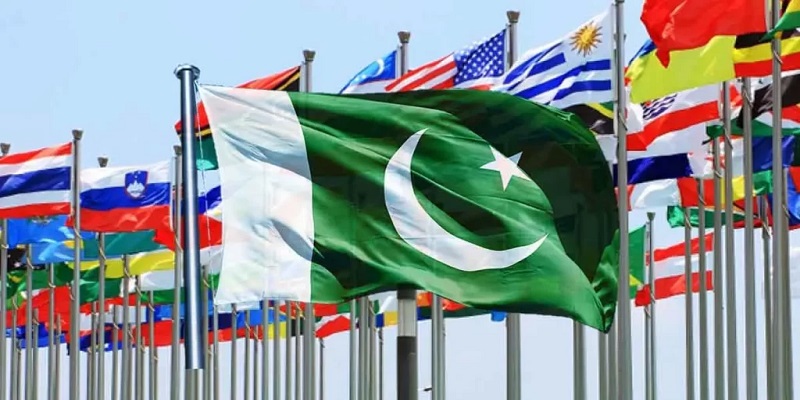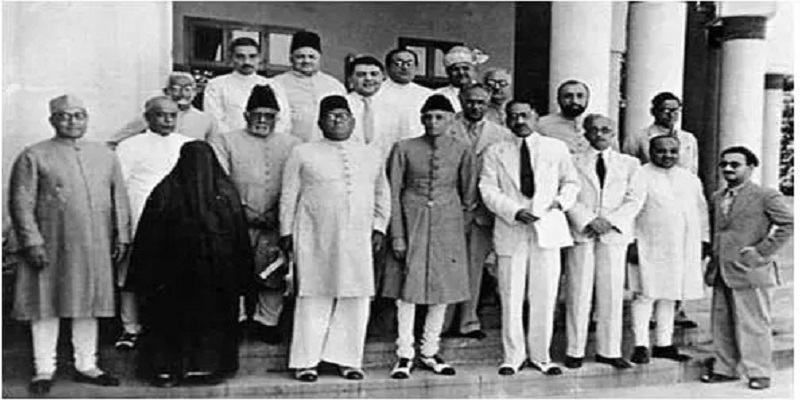
Quaid-e-Azam / Architect of Pakistan's
The life, political journey, and enduring legacy of Quaid-e-Azam Muhammad Ali Jinnah, the visionary leader who shaped the birth of Pakistan in 1947.




Pakistan is situated in the Asian continent, covers an area of 770.875 square kilometers in land area and 25,220 sq km of water, giving the country a significant significance because of its geographical location. Pakistan’s Geography of Pakistan is a complex blend of landscapes that span from plains to deserts hills, forests and plateaus, ranging from the coastal regions that lie along the Arabian Sea in the south to the mountains of the Karakoram range in the north.
Pakistan shares borders with four countries: India, Afghanistan, Iran, China. Pakistan is located between India in the East and Afghanistan towards the west, as well as Iran in the south, while China is bordering the country to the northeast.
7,257 km
3,190 km
2,670 km
959 km
438 km
Federal Parliamentary Constitutional Republic
President: Asif Ali Zardari
Prime Minister: Shehbaz Sharif
Chairman of Senate: Sadiq Sanjrani
Speaker of the Assembly: Sardar Ayaz Sadiq
Chief Justice: Qazi Faez Isa
44.68% Punjabis
15.42% Pashtuns
14.1% Sindhis
8.38% Saraikis
7.57% Muhajirs
3.57% Balochis
6.28 percent Other
Population: 240,485,658 (2023)Grouth Rate(1.98%)
Comparison of countries to the rest of the rest of the world: 6
Capital: Islamabad
Urdu is the national language of Pakistan: Urdu
Currency: Pakistan Rupee
Religion: Muslim
Calling Code: +92
Pakistan's story stretches back millennia, cradling one of the world's earliest civilizations - the Indus Valley Civilization (3300-1300 BCE). Flourishing along the Indus River, this sophisticated society built impressive cities like Mohenjo-daro and Harappa. Renowned for their well-planned urban centers, advanced drainage systems, and baked brick structures, the Harappans were skilled artisans who crafted intricate pottery, bronze tools, and even seals with an unknown script. Their legacy continues to influence the region's cultural tapestry. Following the Indus Valley Civilization's decline, the land witnessed the rise and fall of various empires, including the Mauryas and Greeks. Buddhism flourished under Ashoka the Great, leaving behind remnants like the Taxila ruins, a testament to the era's intellectual and artistic prowess. These interactions laid the groundwork for the rich cultural and religious diversity that defines Pakistan today.
The centuries that followed saw a constant flux of empires and invaders. The powerful Gupta Empire consolidated much of the region, followed by the arrival of the Huns in the 5th century CE. However, the arrival of Islam in the 7th century CE marked a profound turning point. Arab Muslim conquests introduced a new faith that gradually took root, blending with local traditions. The Ghaznavid Empire (977-1186 CE) ushered in a golden age, marked by territorial expansion, intellectual pursuits, and architectural marvels like the Lahore Fort. The subsequent Delhi Sultanate (1206-1526 CE) further consolidated Muslim rule, fostering trade and cultural exchange. This period witnessed the rise of Sufism, a mystical branch of Islam that deeply influenced Pakistani society. The Mughal Empire (1526-1857 CE) stands as a pinnacle of achievement, leaving behind a legacy of magnificent architecture (Taj Mahal, Badshahi Mosque), advancements in art and literature, and a period of relative peace and prosperity. However, internal strife and external pressures weakened the empire, paving the way for European intervention.
Pakistan's foreign policy strives to balance regional security concerns with global cooperation. It prioritizes friendly relations with all nations, especially major powers and neighbors. Safeguarding national interests, including the Kashmir dispute, is paramount. Pakistan seeks to promote itself as a moderate Islamic democracy and contribute to international peace and development.
Pakistan's political journey has been a rollercoaster. After gaining independence in 1947, it grappled with democratic experiments cut short by military coups. Leaders like Ayub Khan and Zia ul-Haq dominated for decades. Recent decades have seen a return to democracy, but challenges like military influence and regional tensions persist.
Pakistan's culture is a vibrant tapestry woven from Islamic traditions, regional influences, and ancient customs. Family values are strong, with extended families often living together. Food is a cornerstone of social life, featuring flavorful dishes with diverse regional variations. Urdu is the national language, but many ethnicities have their own tongues. Music, poetry, and storytelling are cherished art forms.
Pakistan boasts a diverse landscape for tourists, from the majestic peaks of the Himalayas to the serene beaches of the Arabian Sea. Adventurers flock to trek the K2 or explore the Karakoram Highway, while history buffs marvel at Mohenjo-daro's ruins or Lahore's Mughal forts. Foodies can delve into the rich culinary landscape, and nature lovers can explore verdant valleys or spot exotic wildlife in Thar Desert.

Learn how to rank higher in the Google Local Pack and attract more local customers to your business....

OpenAI's new voice cloning tech can create a replica of someone's voice with just a 15-second sample. Explore the possib...

Google Podcasts is shutting down! Learn how to easily transfer your shows, playlists, and listening history to YouTube M...

The life, political journey, and enduring legacy of Quaid-e-Azam Muhammad Ali Jinnah, the visionary leader who shaped the birth of Pakistan in 1947.

The life and vision of Allama Iqbal, the revered Mufakkir-e-Pakistan, whose poetry, philosophy, and political foresight shaped the creation of Pakistan.

The life and contributions of Liaquat Ali Khan, Pakistan's first Prime Minister, navigating challenges in nation-building, democracy, and global diplomacy.

Pakistan's rich geographical diversity – from towering peaks to fertile plains, explore the landscapes that define its history and culture.
Ads.Txt Alerts - A trading name of Red Volcano Limited
Unit 6, Leylands Business Park, Colden Common, Hampshire, SO211TH
© Red Volcano 2020. All Rights Reserved.